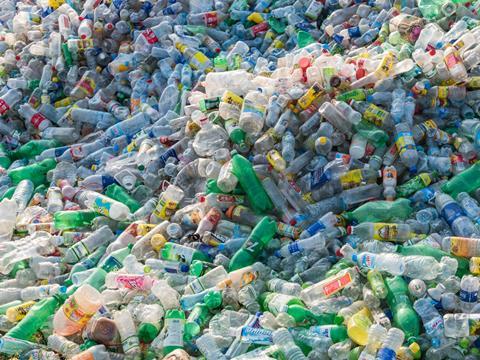
Two new enzymes have the potential to dissolve plastic bottles faster than current recycling methods and create the raw material to make new ones, according to a study from Brunel University London published in the journal, Biofilms and Microbiomes.
Researchers across the world are currently developing bacteria-based solutions that they hope will help to tackle the plastic waste issue, pinpointing several new species that encode enzymes that can degrade plastic. However, the team from Brunel argues that these enzymes often degrade plastic too slowly to be useful.
“These new findings are really exciting,” says Dr Ronan McCarthy, a member of the team. “Not only have we identified two new PET (Polyethylene terephthalate) degrading enzymes, but we found a way to improve their degradation abilities by modifying the bacteria as a whole, rather than modifying each enzyme individually.”
Biomedical scientists at Brunel say that they are doing extensive research in synthetic biology to find ways to make these useful plastic-degrading enzymes work harder.
Synthetic biology uses ideas from engineering to design new biological pathways, organisms and devices and to modify ones found in nature. In this new study, they use the techniques to boost bacteria’s abilities to grow in communities called biofilms.
Bacteria don’t often thrive when they are isolated, but when they are together in biofilm ‘communities’, they can share nutrients and communication signals, and better withstand extreme temperatures and chemical hazards.
The team genetically engineered plastic-degrading bacteria to attach to the waste plastic and form biofilms on it. This reportedly ramped up the concentration of the of enzyme around the plastic, making it more powerful and better at breaking it down.
“This suggests that modulating biofilm formation may be an effective strategy to increase the efficiency of plastic degrading bacteria,” says Dr McCarthy. “Using biofilm to enhance plastic degrading enzyme activity could potentially be applied to all plastic degrading enzymes currently in development.”
Biofilms form on many natural surfaces like soil, water and rocks. In health settings, bacterial infections such as MRSA can form biofilms that create a barrier to antibiotics and the immune system.
The team now plans to test the two new enzymes in a bioreactor. “We want to see if increasing biofilm formation improves the degradation of plastic in a more industrial-like setting,” adds researcher Dr Sophie Howard. “We also aim to further harness synthetic biology to give even greater control over biofilm formation.”
If you liked this article, you might also enjoy:
The L’Oréal approach to packaging sustainability
What steps is Apple taking to make its packaging more sustainable?
How did Brazil achieve its 100% aluminium can recycling rate – and can it be replicated in the EU?
Experts have their say on the EU’s Packaging and Packaging Waste Directive revisions














No comments yet